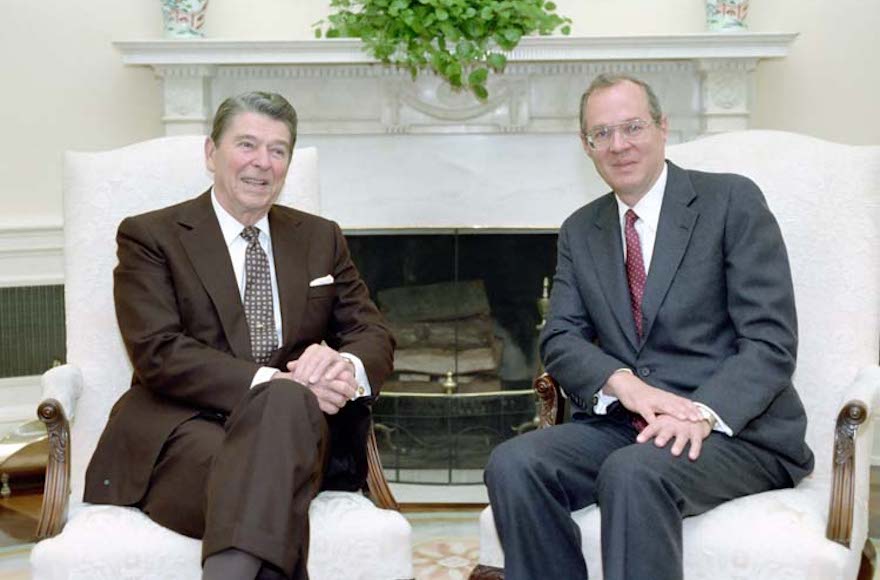Jewish organizations are expected to maintain their traditional neutral position during the confirmation process for U.S. Court of Appeals Judge Anthony Kennedy, whom President Reagan nominated for the Supreme Court last week.
Washington representatives of Jewish organizations told the Jewish Telegraphic Agency that there does not appear to be any reason to take a stand on the nomination of the 51-year-old Sacramento, Calif., native, unless something unexpected is revealed at Kennedy’s Senate confirmation hearings.
Many Jewish organizations broke from the practice of not commenting on Supreme Court nominations when Reagan named Judge Robert Bork of the U.S. Court of Appeals for the District of Columbia to succeed Associate Justice Lewis Powell, who resigned from the court this summer.
Bork’s extensive written opinions on privacy and social issues caused many Jewish organizations to oppose the conservative judge vehemently.
After Bork was rejected by the Senate, Reagan nominated Bork’s appeals court colleague Douglas Ginsburg, who, if confirmed, would have been the sixth Jew in history to serve on the high court.
But Jewish officials stressed that Ginsburg’s Jewishness would not gain him support in the Jewish community if his opinions on church-state and social issues, which were for the most part unknown, were not acceptable. They also expressed the belief that the Jewish community does not accept the concept of a Jewish seat on the court.
Ginsburg withdrew Nov. 7 after revelations about some of his past conduct, including that he smoked marijuana when he was a law professor at Harvard. Reagan then named Kennedy, who has been on the U.S. Appeals Court for the Ninth Circuit in San Francisco since 1975.
David Brody, Washington representative of the Anti-Defamation League of B’nai B’rith, said he believes that there will not be any particular Jewish reaction to the Kennedy nomination.
Brody noted the favorable response to the nomination from both liberals and conservatives. He said Kennedy appears to be “highly regarded as a pragmatist” who judges each case on the facts rather than from an ideological viewpoint.
He added that while many Jews may have “legitimate disagreements” with some of Kennedy’s opinions, he does not appear to be “outside the mainstream of judicial thought” as many believed Bork was.
David Harris, Washington representative of the American Jewish Committee, said his organization does not take a stand on judicial appointments unless there is a question of competence.
The AJCommittee and the ADL did not publicly oppose the Bork nomination.
Mark Pelavin, Washington representative of the American Jewish Congress, one of the organizations that led the Jewish opposition to Bork, said that while many Jews may not agree with all of Kennedy’s views, there is nothing so far to warrant opposition to his nomination.
Pelavin said he made this assessment after examining most of the approximately 400 opinions written by Kennedy while on the appeals court. None of these opinions dealt with the churchstate issue, he noted, although he expected Kennedy would be questioned on this during the confirmation hearing by the Senate Judiciary Committee.
Experts consider Kennedy to be right-of-center, but believe he may provide the same swing vote as Powell did on the court, now evenly divided between conservatives and liberals.
JTA has documented Jewish history in real-time for over a century. Keep our journalism strong by joining us in supporting independent, award-winning reporting.
The Archive of the Jewish Telegraphic Agency includes articles published from 1923 to 2008. Archive stories reflect the journalistic standards and practices of the time they were published.




